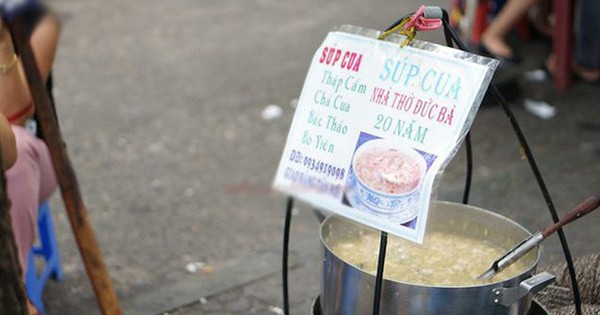Forgetfulness – a serious sign of mental health?
What if you find yourself not learning new things easily or forgetting to pay the occasional bill? What then? Answer: it depends on the problem.
What are the categories for thinking or memory problems? Classifications for problems with thinking or remembering include: normal forgetfulness, reversible amnesia, mild cognitive impairment, and dementia.
Amnesia is a scary word. This is a general term for memory, problem-solving, thinking, and language recall problems that are pervasive or severe enough to interfere with life activities. daily life or cause concern for one’s safety.
What is considered normal forgetfulness?
We all have bouts of forgetfulness. Usual forgetfulness, eg “where are my keys?” and we can combat this amnesia by using many techniques to enhance memory. Eg:
– Get enough sleep: You need seven to eight hours a night. As the National Institutes of Health explained, the best way to learn something new/retain information is to sleep on it. Sleep helps to link new memories and information with previous memories and information, and helps reinforce memories you already have during the day. In addition, sleep-deprived people cannot concentrate as well as well-rested people.
– Exchange: Since depression and stress can heighten or trigger dementia, it makes sense to actively seek out time to share with those we love or enjoy.
– Move your body: Physical activity is good for your entire body – including your brain. Aim for 150 minutes of moderate activity each week like walking or 75 minutes of vigorous activity like running.
– Mental activity is also important: Play board games, do crossword puzzles, Wordle or learn a new language. You can keep your mind active.
– Nurturing the mind: Fruits, vegetables and whole grains along with lean proteins like beans, tofu, fish and chicken are not only ideal fuel for your body but also great for your mind.
What is reversible memory loss?
Reversible memory loss can resemble dementia and its many potential causes. Most conditions are treatable, and once diagnosed and treated, dementia improves.
Some possibilities are:
Vitamin B-12 deficiency: Common in older adults, vitamin B-12 levels that are too low can cause memory problems.
Head injury or trauma: Mild head trauma from an accident or fall, even if it’s not a concussion or even if you’re not unconscious, can cause memory problems.
Medications: Some medications, if taken alone or in combination with other medications, can cause confusion or forgetfulness.
Hypothyroidism: When the thyroid gland is underactive, it can cause problems with thinking and memory.
Alcoholism: Alcohol in any amount can interact with your usual medications and cause memory problems, but chronic alcoholism can severely impair your cognitive function. you, including the ability to retain information.
Brain diseases: Infections or tumors in the brain can cause dementia-like symptoms or worse memory problems.
Emotional disturbances: Anxiety, depression or stress can disrupt our daily cognitive abilities, cause confusion, forgetfulness, and make it difficult to concentrate.
What is mild cognitive impairment?
Mild Cognitive Impairment (MCI) is the stage between the normal, expected cognitive decline associated with aging and dementia, which is more severe and disruptive. You may have an MCI if:
– You lose the ability to think during a conversation or can’t follow the story line in a movie or book
– You increasingly show poor judgment, or become more impulsive
– Making a decision or planning how to complete a task is overwhelming for you
– You forget social appointments and events
– You are usually more absent-minded
– Others notice changes in your memory
– You feel anxious, depressed, lethargic or irritable
– MCI can progress to dementia, but not always. The Mayo Clinic recommends the following steps, which may help prevent or slow the onset of cognitive decline:
.Avoid excessive alcohol use.
.Limit exposure to polluted air.
.Reduce the risk of head injury.
.Do not smoke.
.Manage health conditions such as diabetes, high blood pressure, obesity and depression.
.Practice good sleep hygiene and manage sleep disorders.
.Eat a nutrient-dense diet with plenty of fruits and vegetables and low in saturated fat.
.Social interaction with others.
.Exercise regularly with moderate to vigorous intensity.
.Wear a hearing aid if you have a hearing loss.
.Stimulate your mind with puzzles, games and memory training.
What is amnesia?
Dementia is a general term for a range of conditions that disrupt thinking and memory enough to impair our daily living and ability to function on our own. 60 to 80% of dementia diagnoses are Alzheimer’s disease; Lewy body dementia accounts for 5-10%; Vascular dementia is 5-10%; Frontal dementia is 5-10% and other forms of dementia such as Parkinson’s or Huntington’s disease and mixed dementia make up the rest.
Severe mental decline is an illness, not a normal part of the aging process. It is caused by damage to brain cells, which prevents the cells from communicating with each other. This can impair memory, thinking, and behavior. About a third of people aged 85 and over will experience some form of dementia.
Signs and symptoms of dementia include:
– Lost track of date month year
– Frequent use of poor judgment
– Lost in familiar places
– Asking the same question over and over again
– Balance problem
– Trouble with handling money or paying bills
– Misspelled familiar things
– Impulsive
– Delusions, delusions or hallucinations
– Lack of concern for other people’s feelings
– Difficulty reading or writing
– Loss of interest in normal activities or regular events
If you or a loved one notices these symptoms, you should call your doctor. Treating dementia internally or externally is the first step in treatment.
* Invite readers to watch programs broadcast by Vietnam Television on TV Online and VTVGo!
at Blogtuan.info – Source: vtv.vn – Read the original article here



